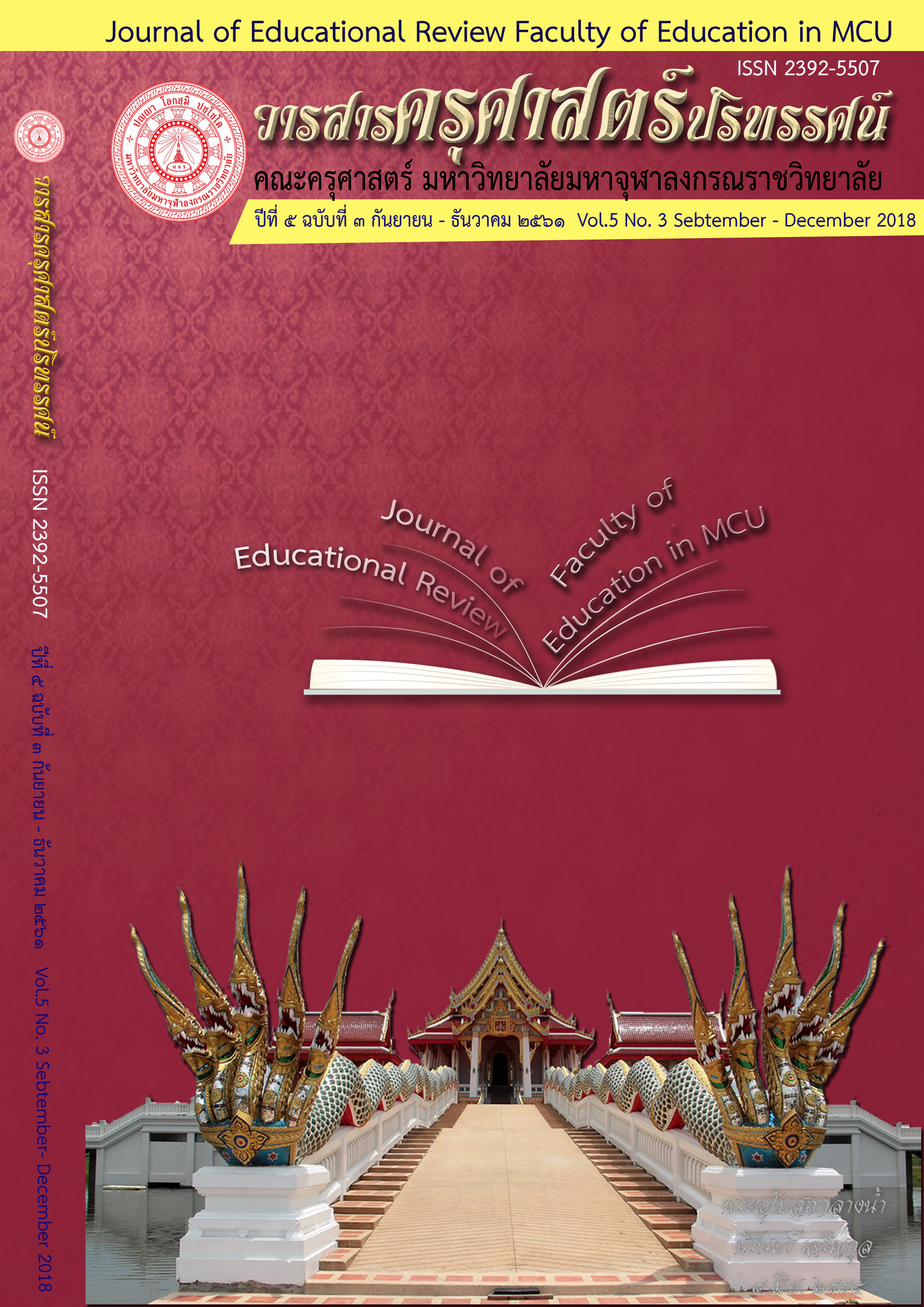The Leadership Building Process According to the Threefold Learning
Main Article Content
Abstract
The aim of this research is to synthesize the process of leadership
development according to Threefold learning. This is qualitative research which
divided in to 3 steps ; 1) the document study of leadership theories and
development 2) the document study of human development according to threefold
learning 3) to synthesize the process of leadership development according to
Threefold learning. Content analysis used for analysing these data .
The results of the research revealed that
1. The leadership development principles and theories in the Industrial era
shown the characteristic and behavioural of Leadership which guarantee the work
successfulness. But on The 21st century the leadership styles are remarking on
transformational leadership and participation working which show the relationship
between leader and the teams. Another Importance action of leadership is Ethical
behaviours. Buddhism teach a lot of Ethical actions of leadership and the ways of
Developing the human being. Leadership of the leaders are very importance for the
staff and social views.
2. Human development by Buddhist way are “threefold learning” which are
“Sila Smathi Panna” . Sila is preserving of Behaviours in five precepts, Smathi or
meditation is controlling the breath (in and out) to concentrate the mind, Panna or
wisdom Is state of known the Nature truth. The practicing begin from Sila to Smathi
and to Panna and be wear of preserving 8 Macca. The purify in Sila made clean mind
then will be good at Smathi (controlling the breath), concentrate mind occurred then
the Panna Enlighten (clarify in knowledge of nature). The useful of Smathi or
meditation are purify mind, clam dawn, peaceful, wisdom occur, creative thinking,
can solve some Problems easily, can integrate some things, etc. Which are the
talents of leadership.
3. The leadership development according to Threefold learning go on by
These processes; the first step study more about The roles model of Good
Leadership characteristics and practice to preserve on Buddhist five precepts (Sila)
which are the basic of Human ethics for controlling behaviours and verbal. The
second step is practice Smathi for concentrating mind which help anybody Has will
power in their mind. The high will power mind are strength which can do efficiency
work more than others such as planning Staff control, leading, advising, good
memory, creative thinking, etc. The third step, when the mind concentrate by
meditation will be enlightenment stage call Panna or wisdom , then the
characteristics of leadership occurred. The conclusion, good characteristics of
Leadership will be occurred by these causes : 1) The leader has good Knowledge in
roles and duties of his tasks with good morality and skillful of practicing. 2) The
leader is more conscious of work by meditating all time. 3) Panna or wisdom which
occurred by meditating will support the idea for working, solve the problems, and
developing.
Article Details
ทัศนะและความคิดเห็นที่ปรากฏในบทความในวารสารฉบับนี้ถือเป็นความรับผิดชอบของผู้เขียนบทความนั้นเพียงผู้เดียว และไม่ถือเป็นทัศนะและความรับผิดชอบของกองบรรณาธิการ
กองบรรณาธิการขอสงวนสิทธิ์ในการคัดเลือกบทความลงตีพิมพ์และจะแจ้งให้เจ้าของบทความทราบหลังจากผู้ประเมินบทความตรวจอ่านบทความแล้ว
ต้นฉบับที่ได้รับการตีพิมพ์ในวารสารครุศาสตร์ปริทรรศน์ คณะครุศาสตร์ มหาวิทยาลัยมหาจุฬาลงกรณราชวิทยาลัย ถือเป็นกรรมสิทธิ์ของคณะครุศาสตร์ มหาวิทยาลัยมหาจุฬาลงกรณราชวิทยาลัย ห้ามนำข้อความทั้งหมดหรือบางส่วนไปพิมพ์ซ้ำ เว้นเสียแต่ว่าจะได้รับอนุญาตจากมหาวิทยาลัยฯ เป็นลายลักษณ์อักษร
References
ครอบคลุมทุกมิติ. แหล่งที่มา: https://fb.me/prachatai.
สุรศักดิ์ หลาบมาลา และรสสุคนธ์ มกรมณี. (๒๕๔๙). รูปแบบนวัตกรรมที่ส่งเสริมการเรียนรู้
คุณธรรมจริยธรรมของต่างประเทศ. รายงานการวิจัย. (กรุงเทพมหานคร : ศูนย์
คุณธรรมและพัฒนาพลังแผ่นดินเชิงคุณธรรม สานักงานบริหารและพัฒนาองค์ความรู้
(องค์กรมหาชน).
อุทัย โล้วมั่นคง. (๒๕๕๒). การนาเสนอแนวทางการพัฒนาคุณลักษณะภาวะผู้นาทางจริยธรรมตาม
แนวพุทธศาสนาของผู้บริหารสถานศึกษา สังกัดสานักงานคณะกรรมการศึกษาขั้น
พื้นฐาน. วิทยานิพนธ์ครุศาสตรดุษฎีบัณฑิต. คณะครุศาสตร์ : จุฬาลงกรณ์มหาวิทยาลัย.
North P.H. (2000). Leadership Theory and Practice. Thousand Oaks: CA.


